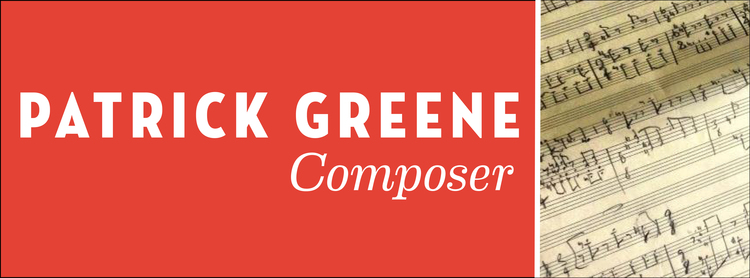But not until it is finished with you takes its title from the second half of a quote by the American author David Foster Wallace: "The truth will set you free. But not until it is finished with you."
I didn't go into the compositional process with that theme in mind—the piece started out as a relatively academic response to Bach's Cello Suite No. 3 in C Major (BWV 1009)—but during the writing of it, I found myself increasingly fixated on the social and political upheavals gripping the world. I started composing But not until it is finished with you in mid-2016, and I finished it in January of 2017. Developments between those two waypoints—especially the vitriolic 2016 US election cycle—left me feeling, for the first time in my life, truly artistically depressed. I felt irrelevant. I felt like I had nothing of worth to say anymore, and that even if I did, no one outside my immediate circles was listening.
But we also welcomed our second child into the world during that period, and it was a profound experience to find such beauty and hope in such despairing times. And that's really what gave me confidence to find my compositional voice again.
I think I realized most of all that periods of darkness and difficulty are how the truth ultimately finds us. Feeling helpless can empowering; it can force you to reevaluate things. To separate what's real from what's illusory. So when I got back to composing the piece, it was with this mindset.
I'm not sure how deeply the experience of writing the thing ended up imprinted on it. It's still, at its core, a response to Bach. But I do know that there are aspects of Bach's life and music that reflect the idea of pushing through despair to find truth, and those things were very much on my mind while composing it. There are certain musical motives—an insistent C-D-E-C-D-E-F#-C-D-E-F#-G figure, for example—that reflect that sense of continuously trying to rise only to be battered back down. The important thing, though, is that those figurations never stop trying to ascend. They continuously push onwards.
I am so tremendously thankful to have Laura Usiskin as a commissioning collaborator on this. She has brought layers of meaning to this music that I couldn't have possibly envisioned, and I'm constantly awed by what she manages to wring out of it.
The piece is dedicated to our son, Henry Ayrton, who was born during the composing of the first movement. He is a beacon of hope, and a source of endless joy.





